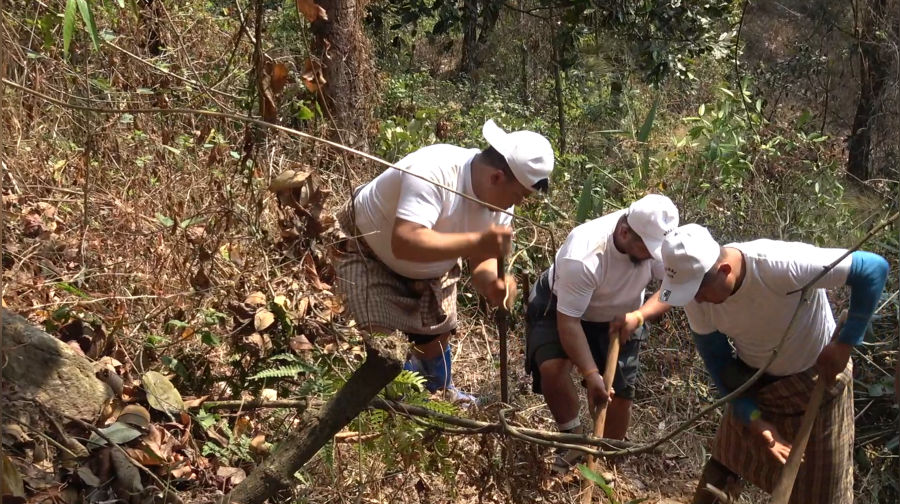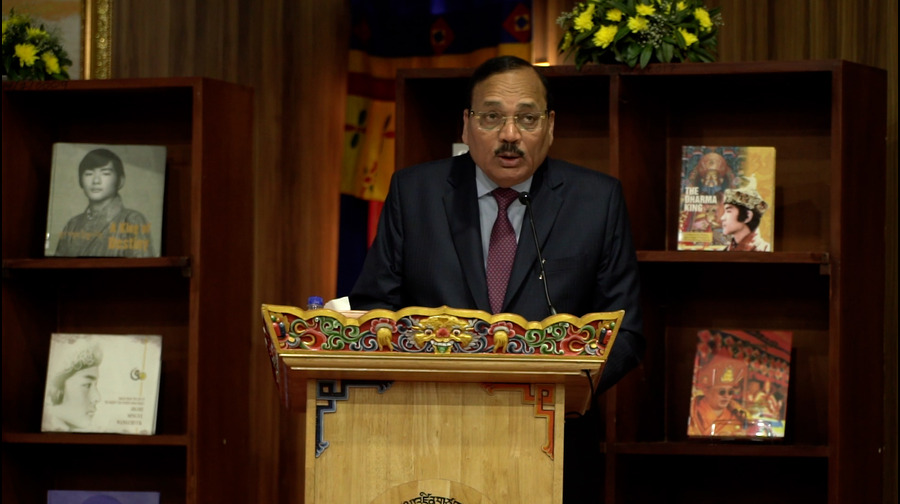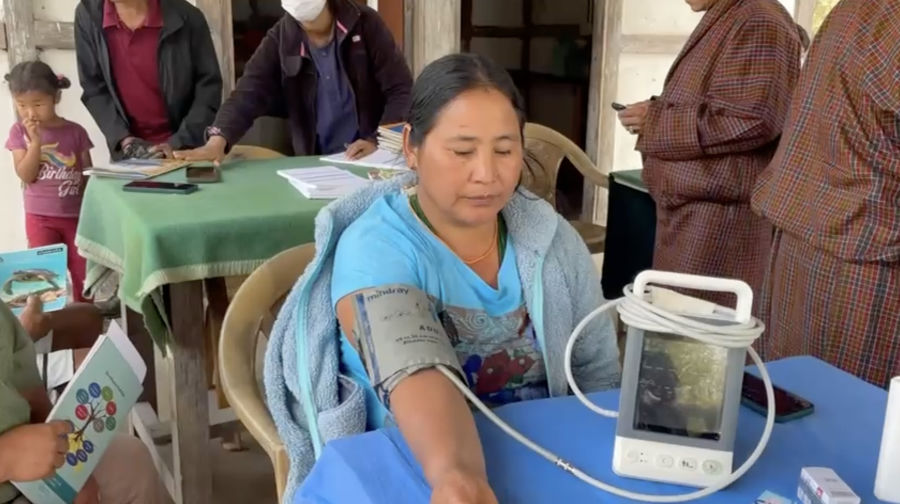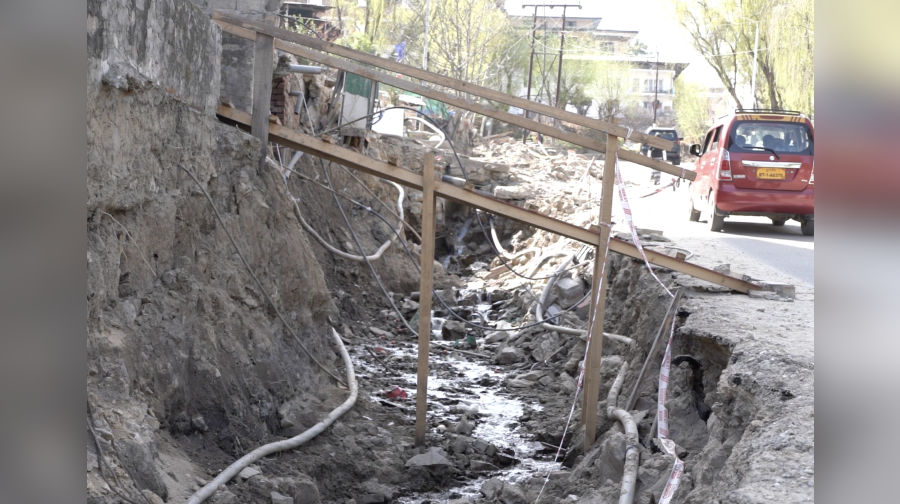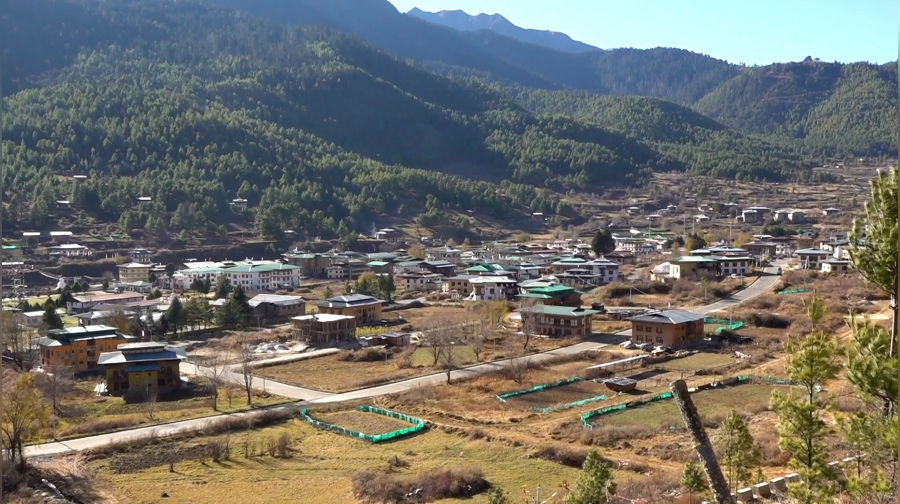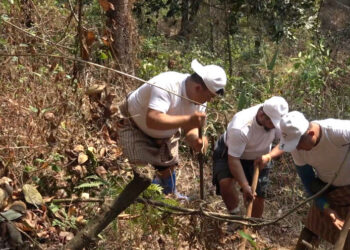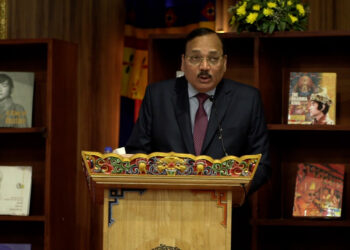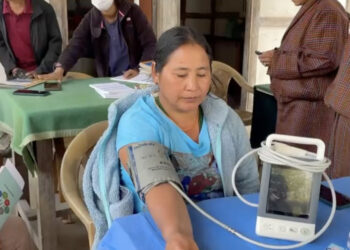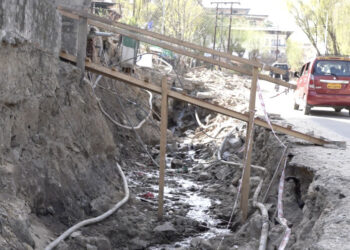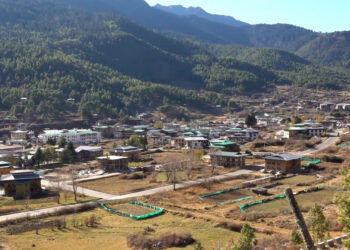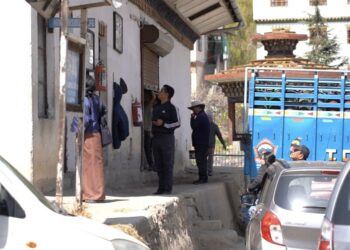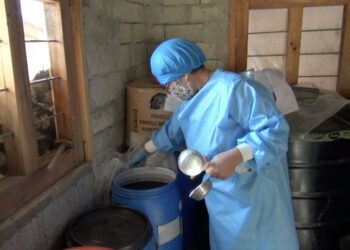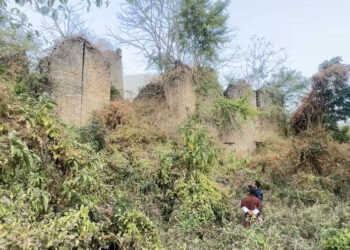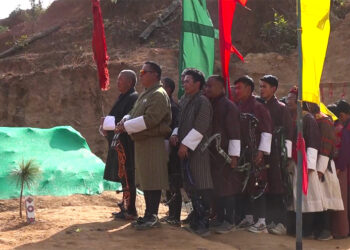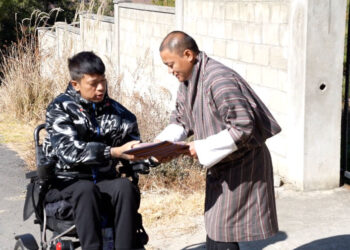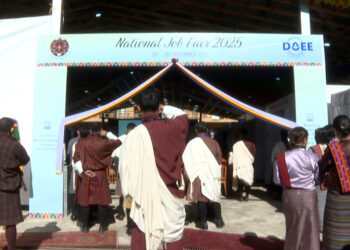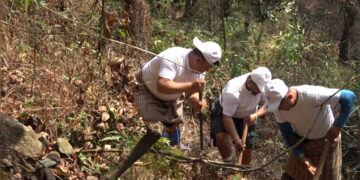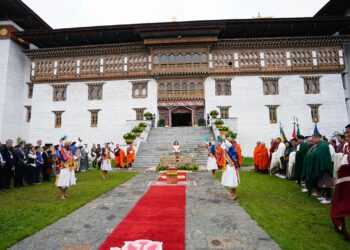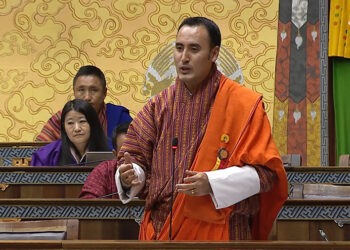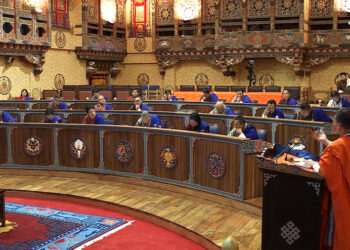Featured News
Decline in horse rearing challenges Pazaap tradition
Local leaders are not only encouraging more young people to become Pazaaps, but they are also exploring ways to address...
Drukpa’s Champion promotes gloves over drugs
From screens to the ring. Bhutanese social media influencers traded filters for fists this weekend. But this was not about...
From backyard harvest to bottled hope: A winemaker’s quiet struggle in Yangtse
Across Bhutan, small-scale entrepreneurs are transforming what grows in their backyards into sources of income. But while passion and skill...
Monggar’s Zhonggar Dzong calls for preservation
Perched in the hills of Saling Gewog in Monggar, Zhonggar Dzong, a 17th-century fortress now reduced to haunting ruins, stands...
Wang-Lingbu Chhondha: More than a game, a celebration of unity
As archery season arrives, a rare match unfolds between two communities from two districts, Lingmukha in Punakha and Martalungchu in...
Selling hope from a wheelchair
Life can change in a moment. For Tandin Gyeltshen, that moment came six years ago, when a sudden illness left...
Youths step up to preserve Sha-Gi Looju ritual in Wangdue Phodrang
Observed once every three years, the Sha-Gi Looju festival in Wangdue Phodrang draws residents home from across the country and...
National Job Fair returns with new focus on long-term careers
After nearly six years, the National Job Fair returned to the capital, with a fresh approach. This time, beyond job...
Ageing population and waning youth interest threaten Dagsa’s Kharphu festival, Monggar
People of Gongdu Gewog’s Dagsa Chiwog in Monggar are struggling to sustain their biennial local festival called Kharphu, due to...
Paro turns up the volume with Bhutan’s first Asia Rock Festival
As prayer flags fluttered in the evening breeze and the sun set behind Paro’s dzong, monasteries and temples, a new...
Politics
FASTag access for Bhutanese vehicles nears resolution as India submits SOP draft
The foreign affairs and external trade ministry has received a draft Standard Operating Procedure from the Indian government concerning the...
Popular
-
‘News in Tales’ workshop equips Bhutanese journalists with narrative storytelling skills
-
Dzongkha Books, the last to be bought.
-
No students qualify for newly introduced class XII re-sit
-
BoB clarifies technical glitch behind multiple EMI deductions
-
Bhutanese fighter makes MMA breakthrough with title win
Casino en ligne avec mise en argent réel
Choisissez un casino en ligne avec argent réel pour jouer à vos jeux préférés et retirer vos gains en toute simplicité. Avec des options de paiement rapide et un environnement réglementé, vous bénéficiez d’un divertissement sûr et fiable.
Nyagoe contribute strength and service to GMC
Nyagoe are putting their strength to meaningful service. A team of 38 Nyagoe is currently volunteering in Gelephu Mindfulness City,...
Technology reshaping India’s justice system – Chief Justice of India
The Chief Justice of India who is on a four-day visit to Bhutan said technology is already reshaping the justice...
High blood pressure most common in ongoing NCD screening
More than 6,000 people have been identified as at risk of non-communicable diseases since the screening programme began in three...
Drain works in Thimphu disrupt businesses and raise safety concerns
What began as a solution to Thimphu’s drainage problems is now affecting residents and businesses, as drain upgrades continue across...
Zakar
Recent News
News Category
- Accidents
- Agriculture
- Announcement
- Audience Survey Report
- Business
- Crime/Legal
- Culture
- Development
- Disaster
- Economy
- Education
- Entertainment
- Environment
- Feature
- Featured
- Festival
- Global Peace Prayer Festival
- GMC
- Gyalsung
- Headlines
- Health
- HYDROPOWER
- K4 70th Birthday special feature
- Legal
- Literature
- Livestock
- Media
- Other Stories
- Pelsung
- Politics
- RCSC
- Recent stories
- Religion
- Sci/Tech
- Social
- Sports
- Technology
- Textile
- Tourism
- Uncategorized
- Video
- Video Story
- Wildlife
© 2024 BBSCL. All rights reserved.

